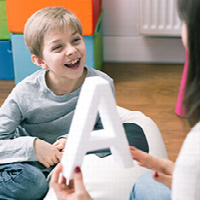As election season heats up, the noise, the debates, and the constant news can stir up all kinds of emotions—and our kids feel it too. For neurodivergent children, the impact can be even greater, often in ways we don’t always see right away. Here’s what we might be overlooking about election anxiety in neurodivergent youth, along with practical ways to support them through it all.
Why Election Season Feels Especially Intense for Neurodivergent Kids
- They’re Sensitive to Our Emotions
Many neurodivergent kids are incredibly tuned in to the emotions around them, especially from parents, teachers, and other caregivers. If we’re feeling anxious or frustrated about the election, they’re likely picking up on it—sometimes even more intensely than we realize. These “big feelings” from the adults they trust can make them feel uneasy or worried, even if they don’t fully understand why.
- The Fear of Change and the Unknown
For many neurodivergent children, predictability is a source of comfort. The election season’s constant talk of potential “big changes” can stir up stress and insecurity. Whether they hear about “safety,” “money problems,” or “rules changing,” these discussions can feel like a threat to the stable, predictable world they rely on.
- Literal Thinking Can Lead to Worry
Kids who think more literally might hear talk of things like “crises” or “problems” and interpret them as real, immediate threats. When candidates use strong, fear-based language, neurodivergent kids may take those words at face value, leading to anxiety about things they don’t fully understand.
- Social Media and Misinformation
With older kids, especially teens, social media adds another layer. They’re likely seeing election content online, and some neurodivergent youth can struggle with spotting misinformation or satire, which can make things even scarier. They might take everything they read as truth, leading to worries about things that aren’t even real.
How to Help Neurodivergent Kids Manage Election Anxiety
- Model Calm and Confidence
Our kids look to us to see how they should react, so by modeling calm and balanced behavior, we’re helping them feel secure. When discussing the election, avoid fear-driven language and focus on staying calm—even if it means taking a breather yourself!
- Stick to Routines for a Sense of Stability
Daily routines can serve as a comforting anchor for neurodivergent children. While the world might seem unpredictable, the stability of daily activities—school, meals, bedtime—can help reassure them that their world isn’t turning upside down.
- Offer Concrete Reassurance
It’s helpful to talk about what’s really likely versus what’s hypothetical. Reassure them that their day-to-day lives, their home, and their school won’t be changing. Simple, straightforward conversations like, “Yes, adults are talking about future plans, but everything here will stay the same,” can help keep worries in check.
- Teach Simple Fact-Checking Together
If your child is seeing things online, you can make it a learning moment by showing them how to check if something is true. Sit down together and show them how to find reliable sources or gently explain that not everything they see on social media is accurate.
Our kids are watching and feeling along with us this season. Let’s support them by helping them make sense of the noise, reassuring them of the stability in their lives, and giving them tools to manage the “big feelings” that come with it all. Together, we can help our neurodivergent kids feel safe and grounded, even during an election season full of intensity and change.












